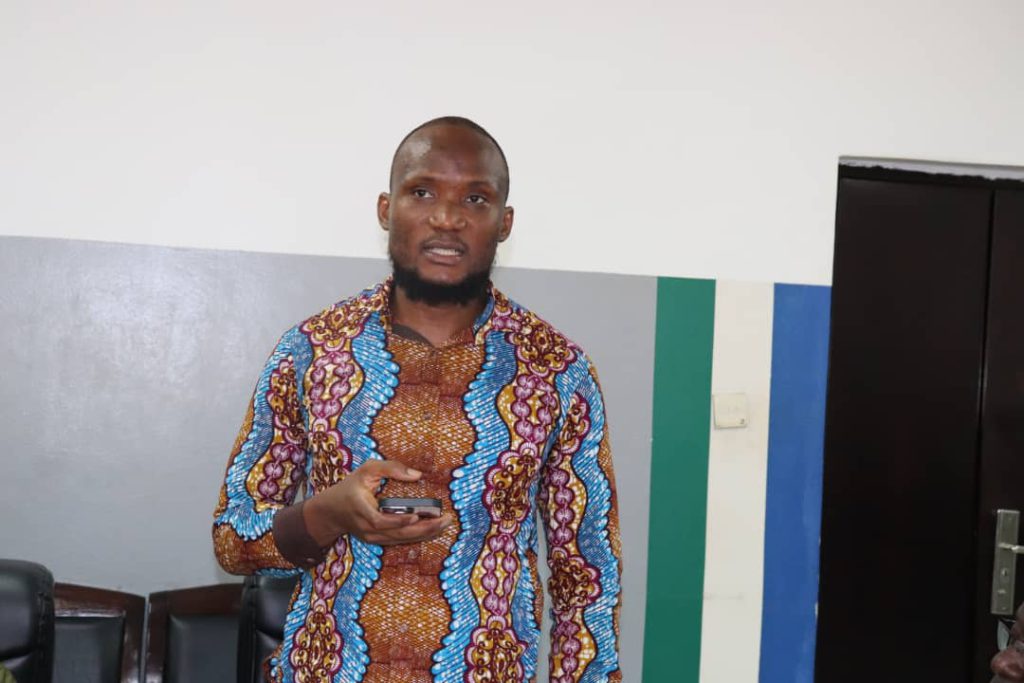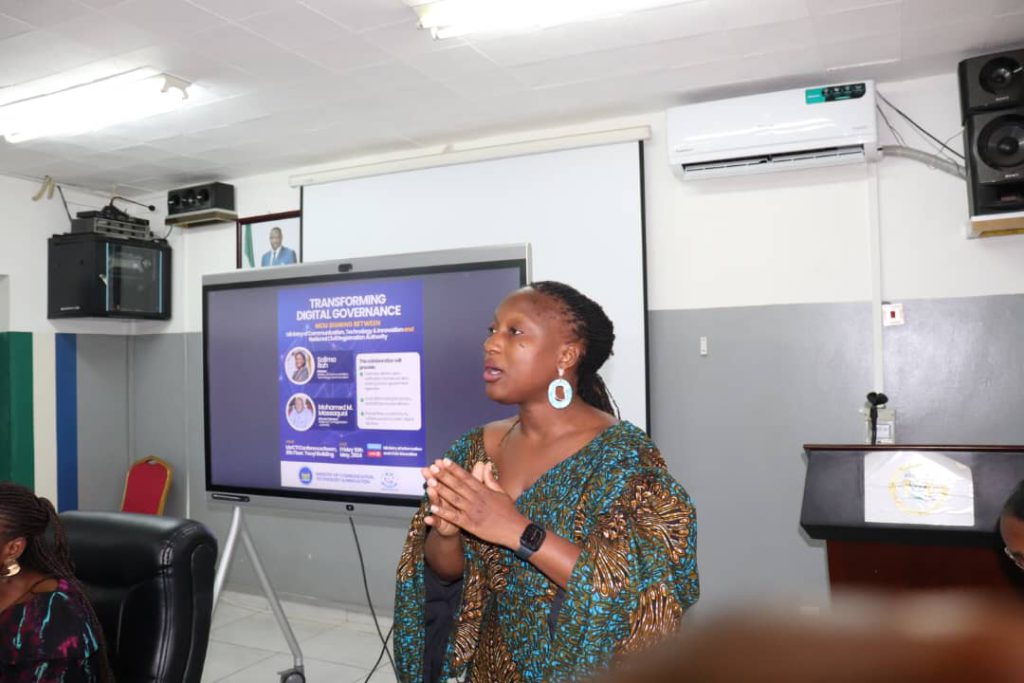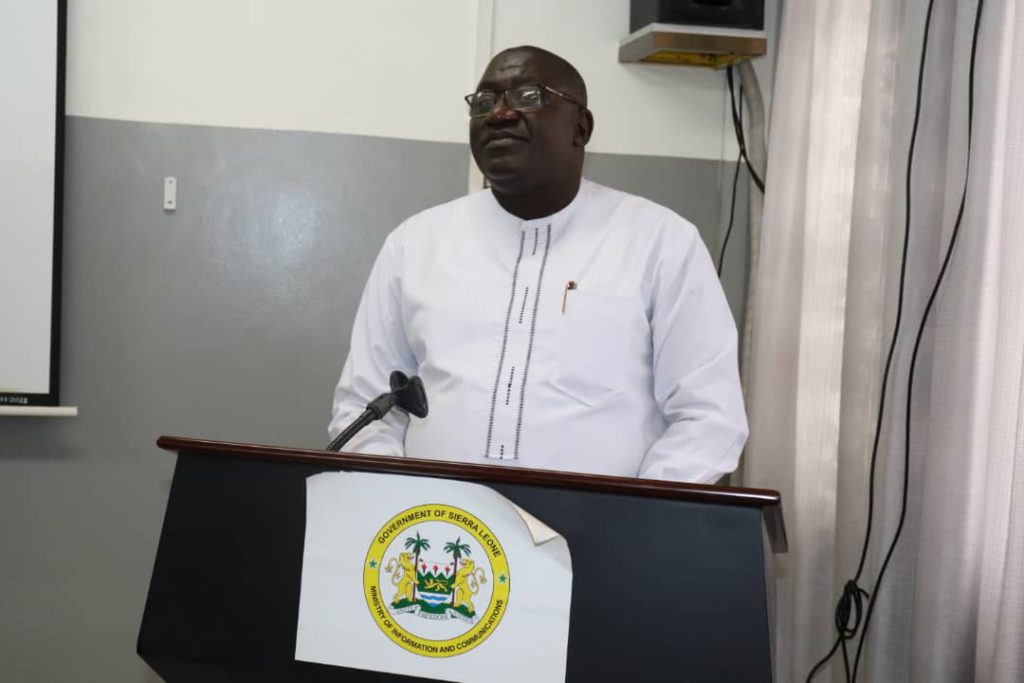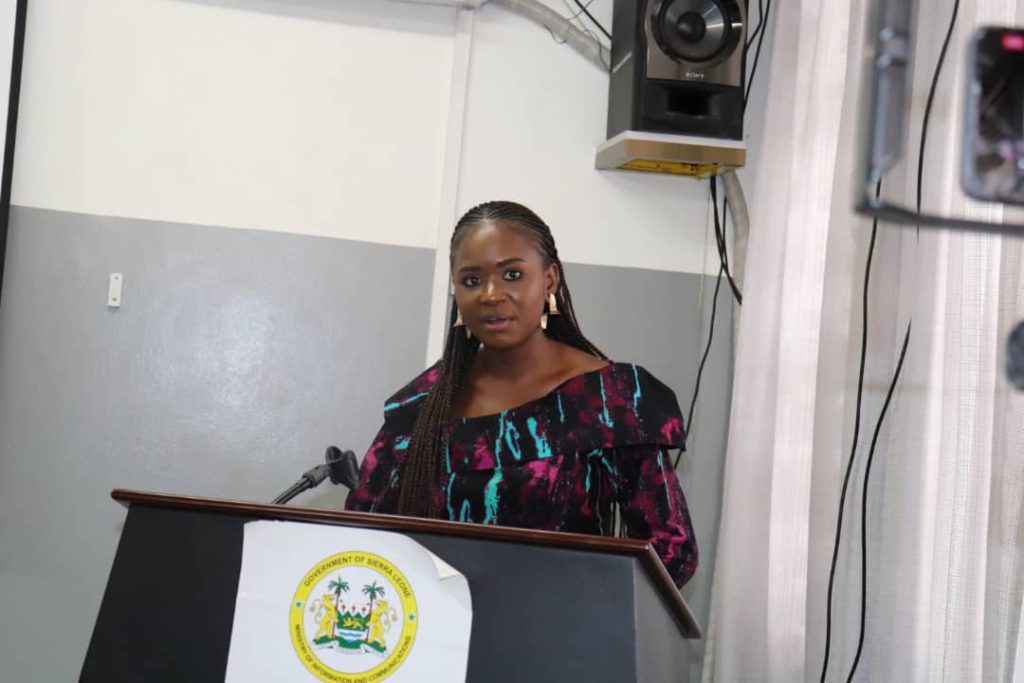
National Civil Registration Authority (NCRA) and the Ministry of Communication, Technology, and Innovation (MoCTI) signed a Memorandum of Understanding (MoU), aimed at transforming digital governance in Sierra Leone on 10th May 2024 at the Youyi Building Conference Room of the Ministry.
This event not only reinforces the intergovernmental collaboration between these two pivotal entities but also lays a secured, foolproof and robust foundation for future partnerships with other key stakeholders for data sharing.
This strategic alliance is set to redefine the interactions between the NCRA and key Ministries, Departments, and Agencies (MDAs), enhancing real-time identity verification, secured data exchanges, and bolstering the entire digital service delivery framework. Leveraging on local data hosting and robust fiber connectivity, this initiative promises to heighten both privacy and the reliability of digital services.

Alieu Kallon, Director of Information Communication and Technology at NCRA, meticulously explained NCRA’s coordination with MoCTI counterparts clearly stating the roles and responsibilities of the two institutions as enshrined in the MoU. Mr. Kallon revealed that the NCRA will serve as the primary host for identity data, facilitated by its cutting-edge Tier-3 Primary Data Center that will provide MDAs with data hosting services, establishing a new benchmark for efficiency and secured accessibility round the clock.

Kumba Musa, an ICT specialist at MoCTI, highlighted the necessity for institutions to share data seamlessly, noting, “At the heart of digital governance is the critical need for interoperability, that allows for secured and streamlined data sharing across platforms—a cornerstone concept that drove this initiative.”

In a stirring address, Mohamed Mubashir MASSAQUOI, the Director General of NCRA, underscored the need for collaborative effort to revolutionize and invigorate the national digital framework. “Today, we not only sign an MOU; we commence a transformative journey towards digital empowerment, integrating every facet of government interaction with revolutionary technology and principles,” MASSAQUOI emphasized.
The Director General highlighted the challenges of navigating bureaucratic landscapes, burdened by fragmented data systems that usher inefficiencies and erode public trust. “Now, thanks to this MoU, we dismantled these long-standing barriers, introducing a new paradigm that fosters synergy, eliminates silos, and places efficiency and responsiveness at the heart of our digital initiatives,” he declared.
Touching on the essence of the collaboration, MASSAQUOI continued, “At the heart of our endeavor, lies the Data Exchange Layer (DEL), a transformative infrastructure set to be the linchpin of our digital transformation journey. This initiative isn’t just about enhancing our current capabilities but about rethinking and elevating the entire operational landscape of our governance systems.” He added that the data sharing layer once established will enhance:
- effective governance using technology
- synergies over silos operations
- shift from traditional to digital identity verification
- increase in governance participation
- sharing of information effortlessly and instantaneously

Echoing the sentiments of the Director General of the NCRA, Minister of MoCTI, Salima Bah, spoke with rigor about the essential nature of this partnership and reaffirmed the Ministry’s commitment. Noting the foundational role of data identification, she stated, “Initiating our efforts with the NCRA is a strategic move. Data is the bedrock of digital governance, and streamlining access across services is critical to our collective success.” She emphasised that increase in interoperability in a secured way is the bedrock of the collaboration.
As proceedings drew to a close, the commitment resonated through the signing of the MoU, observed by an assembly of distinguished guests including some NCRA Board Members senior management from both institutions, representatives from various MDAs, and key personalities from the Presidential Delivery Unit and other stakeholders.
The path forward for Sierra Leone’s digital governance looks promising indeed, with this MoU laying the groundwork for a more connected, efficient, and transparent government interaction framework. This event marks a significant stride towards realizing a digitally empowered Sierra Leone, driven by integrity, innovation, and inclusivity.
For more details and updates on Sierra Leone’s path to digital transformation and identity management systems, please contact the IEC-Directorate.
Leave a Reply